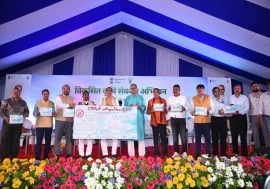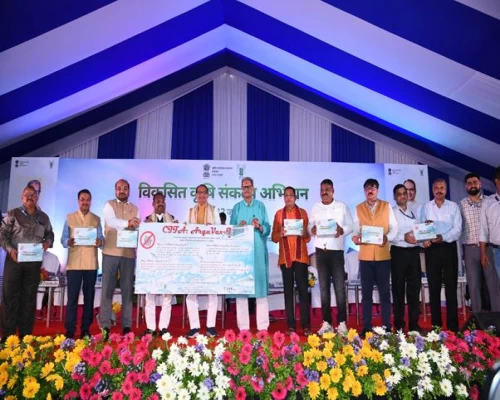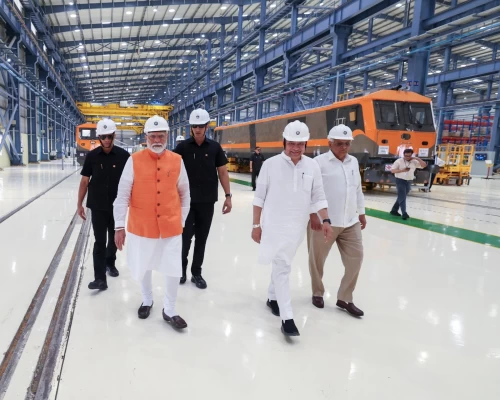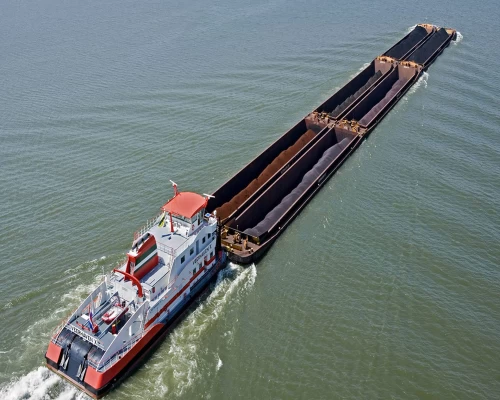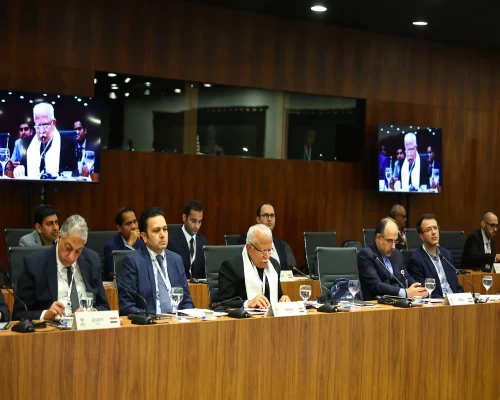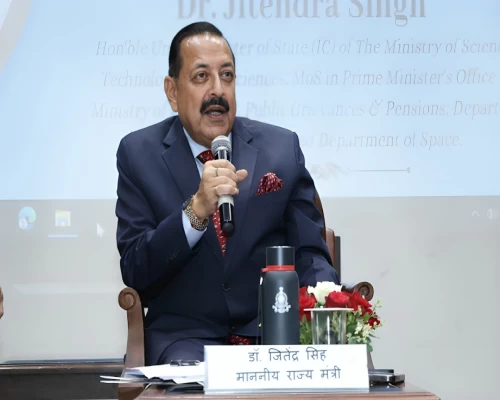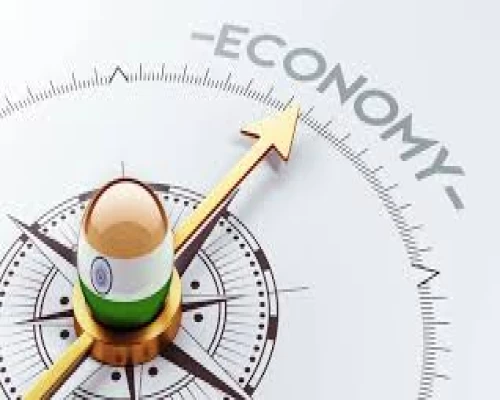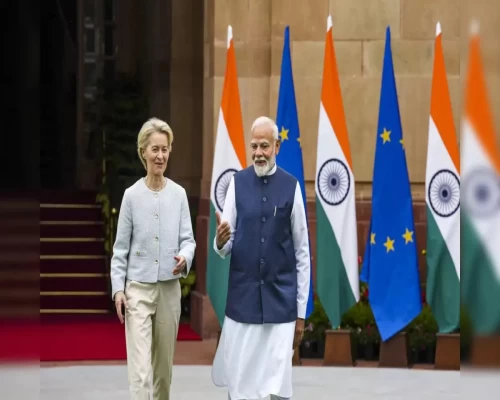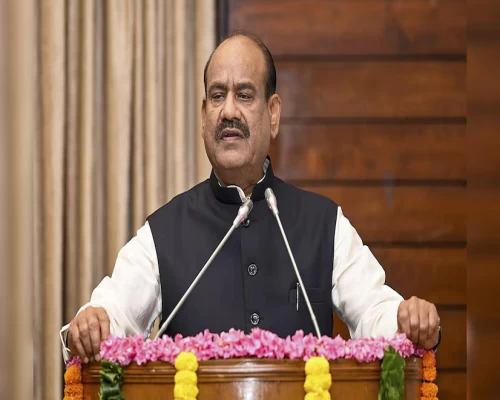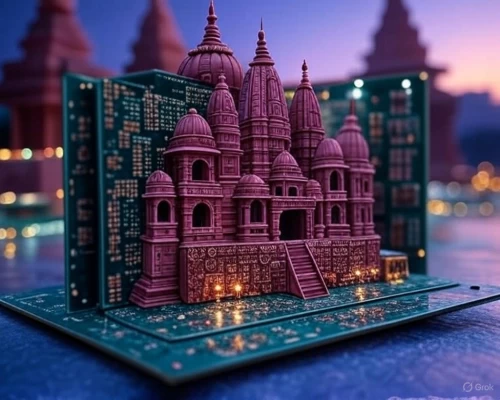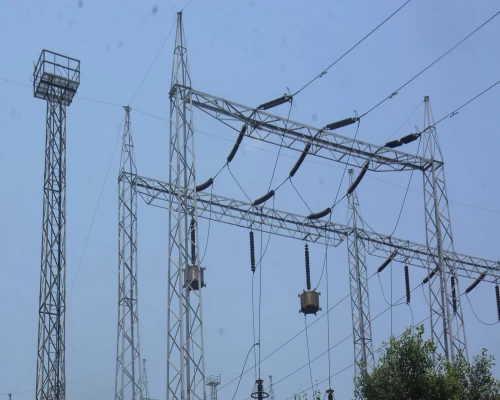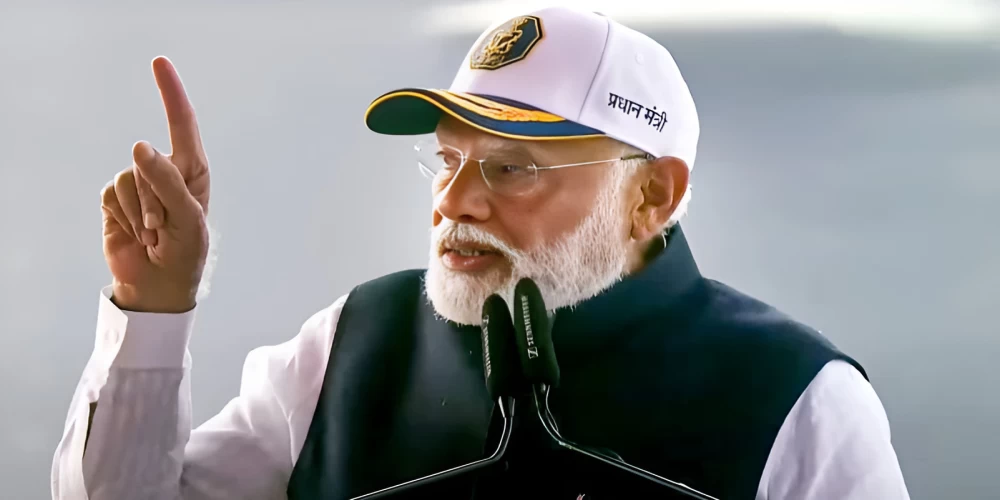
New Delhi: The commissioning of three frontline naval combatants highlights India's unwavering commitment to building a robust and self-reliant defence sector, said Prime Minister Narendra Modi. He described it as a significant step towards empowering the Indian Navy of the 21st century. "Today's India is emerging as a major maritime power in the world," the Prime Minister remarked, noting that India is recognised globally as a reliable and responsible partner, especially in the Global South. "India has emerged as the first responder across the entire Indian Ocean Region," he added, emphasising the nation's role in safeguarding its interests on land, water, air, the deep sea, and infinite space.
Addressing the gathering at the Naval Dockyard in Mumbai, where INS Surat, INS Nilgiri, and INS Vaghsheer were commissioned, Modi said that 15 January is commemorated as Army Day, saluting every brave warrior who sacrifices their life for the nation's safety and security. He congratulated all the brave warriors on this occasion.
The Prime Minister noted that today was a significant day for India's maritime heritage, the Navy's glorious history, and the Atmanirbhar Bharat Abhiyan. He highlighted the contributions of Chhatrapati Shivaji Maharaj to the Navy in India, stating that the government has taken a major step towards empowering the 21st-century Navy. He pointed out that it was the first time a destroyer, frigate, and submarine were being commissioned simultaneously. He underscored that it was a matter of pride that all three frontline platforms were made in India, congratulating the Indian Navy, stakeholders involved in the construction, and the citizens of India.
Modi reflected on India's rich history of long sea voyages, commerce, naval defence, and shipbuilding, stating that today's India is emerging as a major maritime power. The launch of new platforms like INS Nilgiri, dedicated to the maritime prowess of the Chola dynasty, and the Surat warship, reminiscent of Gujarat's historical maritime connections, were highlighted. He also mentioned the commissioning of the Vagsheer submarine, the sixth in the P75 class, following the first submarine, Kalvari, a few years ago. These new platforms will enhance India's security and progress, he said.
The Prime Minister emphasised India's role as a reliable and responsible partner globally, particularly in the Global South, operating with a spirit of development rather than expansionism. He reiterated India's commitment to an open, secure, inclusive, and prosperous Indo-Pacific Region, advancing the vision of SAGAR (Security And Growth for All in the Region). He highlighted India's leadership during its G20 presidency and initiatives like "One Earth, One Family, One Future" and "One Earth, One Health," underscoring India's commitment to inclusive development and regional security.
Modi stressed the significant role of maritime nations like India in shaping global security, economics, and geopolitical dynamics. He highlighted the importance of protecting territorial waters, ensuring freedom of navigation, and securing trade supply lines for economic progress and energy security. He called for global partnerships to make the seas safe and prosperous, enhancing logistics efficiency, supporting the shipping industry, and preventing the misuse of ocean resources. He noted that India has emerged as the first responder in the Indian Ocean Region, with the Indian Navy saving lives and securing cargo, increasing global trust in India and its maritime capabilities.
Highlighting India's military modernisation, Modi said that continuous reforms, such as the establishment of the Chief of Defence Staff and the implementation of theatre commands, are making the armed forces more efficient. He praised the armed forces for adopting self-reliance, reducing dependence on imports, and enhancing confidence through domestically produced equipment. He cited the establishment of major manufacturing facilities and achievements in defence production, including the Tejas fighter plane and defence corridors in Uttar Pradesh and Tamil Nadu, as examples of progress.
The Prime Minister expressed satisfaction with the Navy's significant expansion of the Make in India initiative, with 33 ships and seven submarines included over the past decade, almost all built in Indian shipyards. He highlighted that India's defence production has surpassed ₹1.25 lakh crore, with exports to over 100 nations, and anticipated rapid transformation with continued support.
Modi underscored the economic benefits of the Make in India initiative, particularly in shipbuilding, which has a significant multiplier effect on the economy and employment, especially in the MSME sector. He emphasised the need for continued growth in manufacturing and export capacity, noting the future need for hundreds of new ships and containers.
The Prime Minister highlighted the government's focus on infrastructure connectivity in border and coastal areas, citing recent projects like the Sonamarg Tunnel and the Sela Tunnel. He mentioned the development of critical infrastructure projects like the Shinkun La Tunnel and Zojila Tunnel, the Bharatmala project, and the Vibrant Village Program. He also noted the government's attention to remote islands and underwater seamounts, enhancing India's pride.
Modi emphasised the importance of deep sea and space exploration, citing initiatives like the Samudrayaan project. He stressed the need to move forward with confidence by freeing India from colonial symbols, highlighting the Indian Navy's leadership in adopting the traditions of Chhatrapati Shivaji Maharaj. He concluded by expressing confidence in achieving the goal of a developed India and strengthening the nation's resolve with new frontier platforms.
The Governor of Maharashtra, the Union Minister for Defence, the Chief Minister of Maharashtra, the Union Minister of State for Defence, and Deputy Chief Ministers of Maharashtra were among the dignitaries present at the event.
BI Bureau


